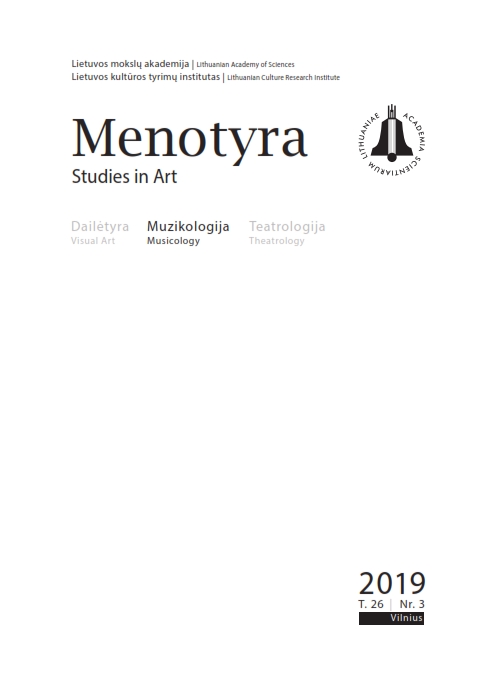Juliaus Juzeliūno kūryba ir pedagogika jo mokinių akimis
Julius Juzeliūnas’ creative work and teaching methods through the eyes of his students
Author(s): Rūta GaidamavičiūtėSubject(s): Fine Arts / Performing Arts, Music
Published by: Lietuvos mokslų akademijos leidykla
Keywords: Julius Juzeliūnas; pedagogue; composition; multivector interactions;
Summary/Abstract: The goal of this article is to show the peculiarities of Julius Juzeliūnas’ teaching methods. The specificity of composition as a discipline and its creative character naturally calls for an individual attitude to it. The qualitative survey method was applied for research. The composer taught creative work between 1952 and 2001, and over fifty students who studied under him graduated from the Lithuanian conservatoire. Adding up the creative potential of all of his students, most of the Lithuanian musical events of the last decades are covered, and it can be seen how they have shaped and continue to shape our music and reaction to it in a wider environment. Some of their compositions also receive response on a wider scale. Juzeliūnas’ school was far from being dogmatic. The term “multivector” can aptly define the results of his teaching methods as many different forces have to be taken into account: the expression of the professor’s individuality and his aesthetic principles, the development of the language of Lithuanian music, students’ individualities, and finally the historic turning point in Lithuania that changed the social relations in the country, globalisation challenges etc. Juzeliūnas applied his teaching methods individually for every student and he was open to innovation. Evaluating the creative maturity and relevance of their earlier pedagogue today most of the respondents mentioned the same most popular works – the African sketches, the symphony “Lygumų giesmės” (Songs of the Plains), and the opera “Žaidimas” (The Game). Juzeliūnas’ theoretical book “Akordo sandaros klausimu” (On the Structure of the Chord) and his encouragement to others to pursue scientific research also had a great influence.
Journal: Menotyra
- Issue Year: 26/2019
- Issue No: 3
- Page Range: 186-200
- Page Count: 15
- Language: Lithuanian

